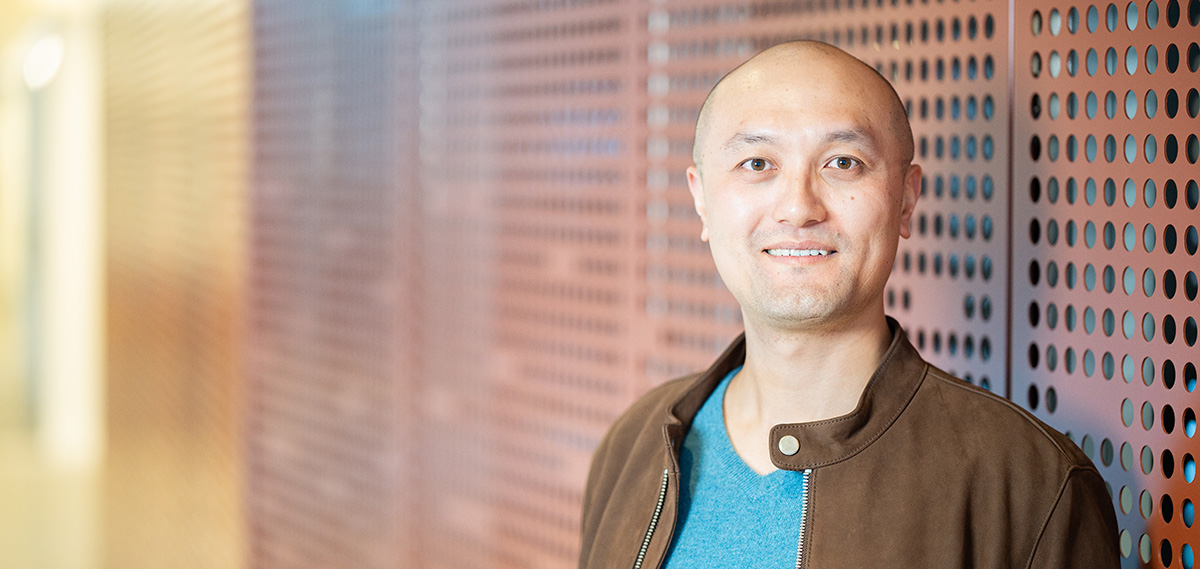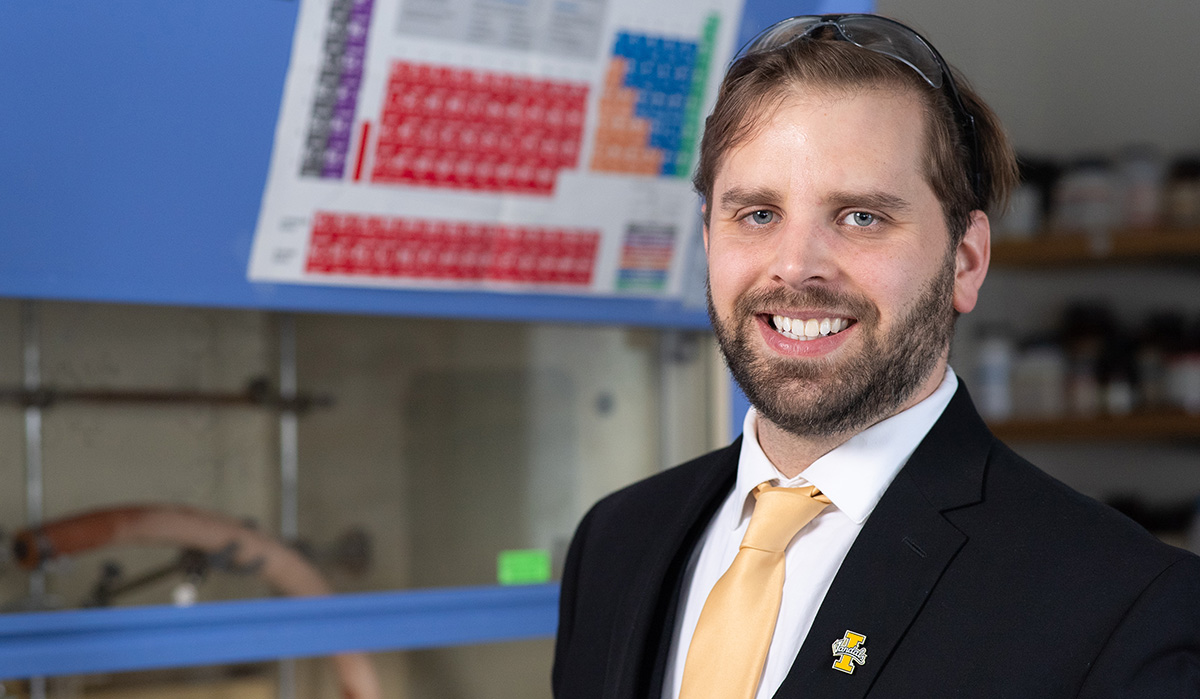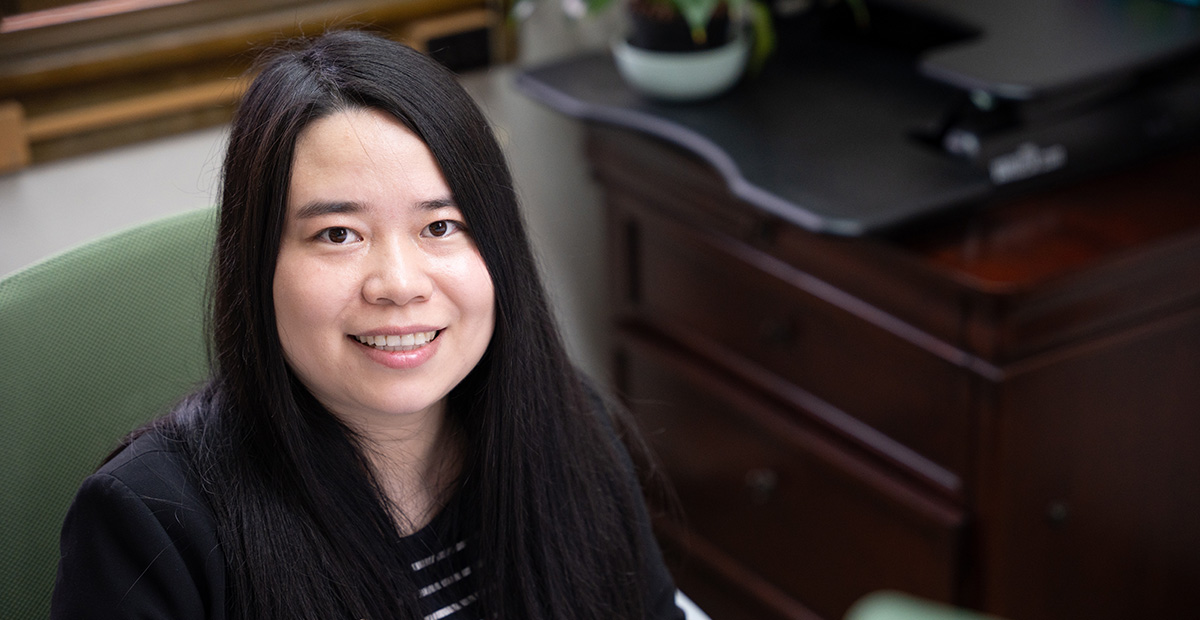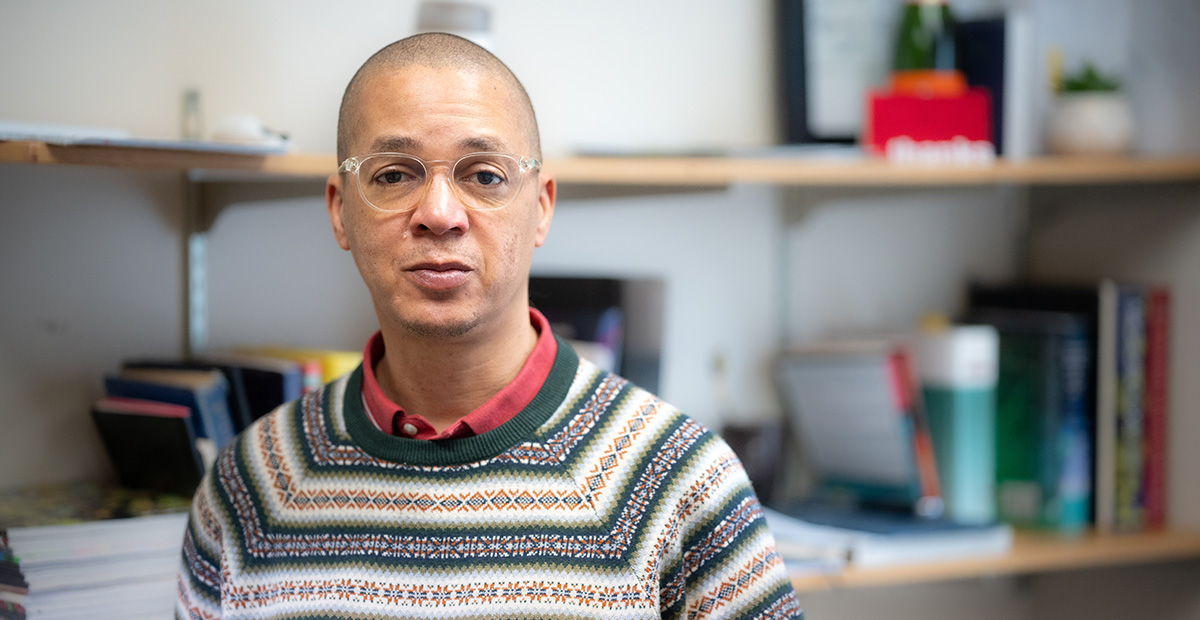Sustainable Science Innovations
Four New Researchers Investigate Ways to Make Our World More Sustainable
Article by Leigh Cooper, University Communications and Marketing.
Photos and video by University of Idaho Visual Productions.
Use LED lightbulbs. Buy reusable water bottles. Rely on public transportation or a bicycle.
That’s a classic list of go-to sustainability strategies. But many of these tactics rely on individual personal choices. University of Idaho thought bigger.
The College of Science hired four new researchers to investigate aspects of sustainability that affect society as a whole — including questioning fundamental ways we use land and the impacts of tools we wield. They study everything from how we make important chemicals and use antibiotics to how plants use water and how effectively we diagnose disease.
Meet our new Vandal scientists as they explain their sustainable research.
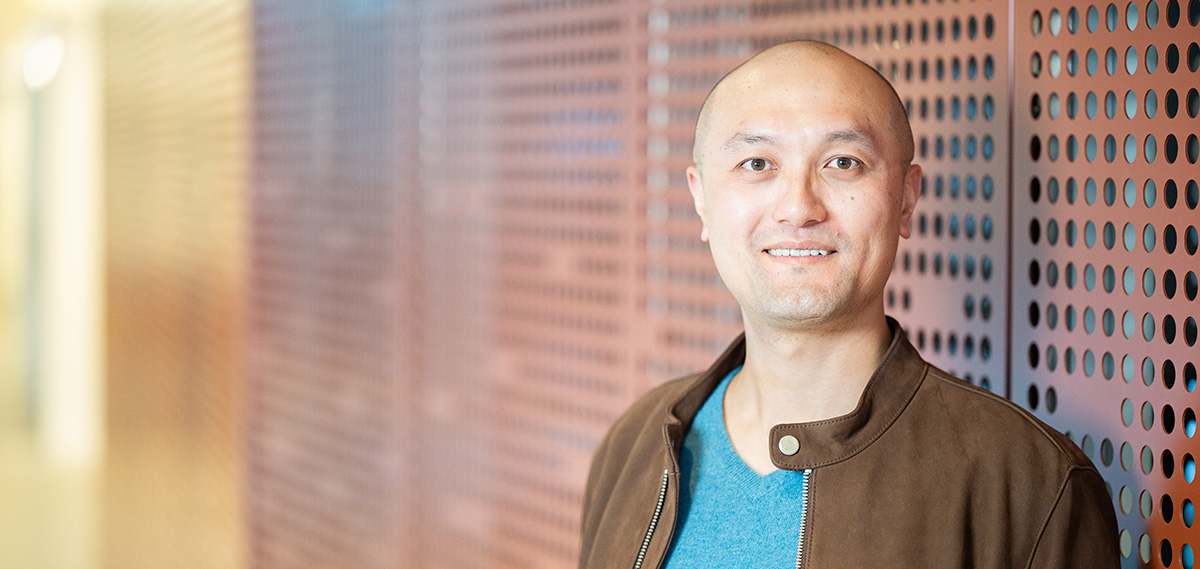
Meng Zhao, Ecohydrologist
In one sentence, I study how trees use water. This is important because it dictates how much water is available for human beings, especially during hot and dry days. Under climate change, we’re going to have more droughts and heat waves, and vegetation is a very large water user. We must understand the trees’ behaviors now so we can better prepare for our future, especially for water security and food security.
Many people think planting trees could be a good thing, but that will shift how water is used on the landscape. There could be the unintended consequence of losing water to the new forest. Using satellites, I can measure the amount of water on a landscape and track changes in water resources during reforestation projects.
By understanding past and current water use patterns of vegetation, I hope I’ll be able to provide advice on future land use strategies as climate change becomes more and more influential.
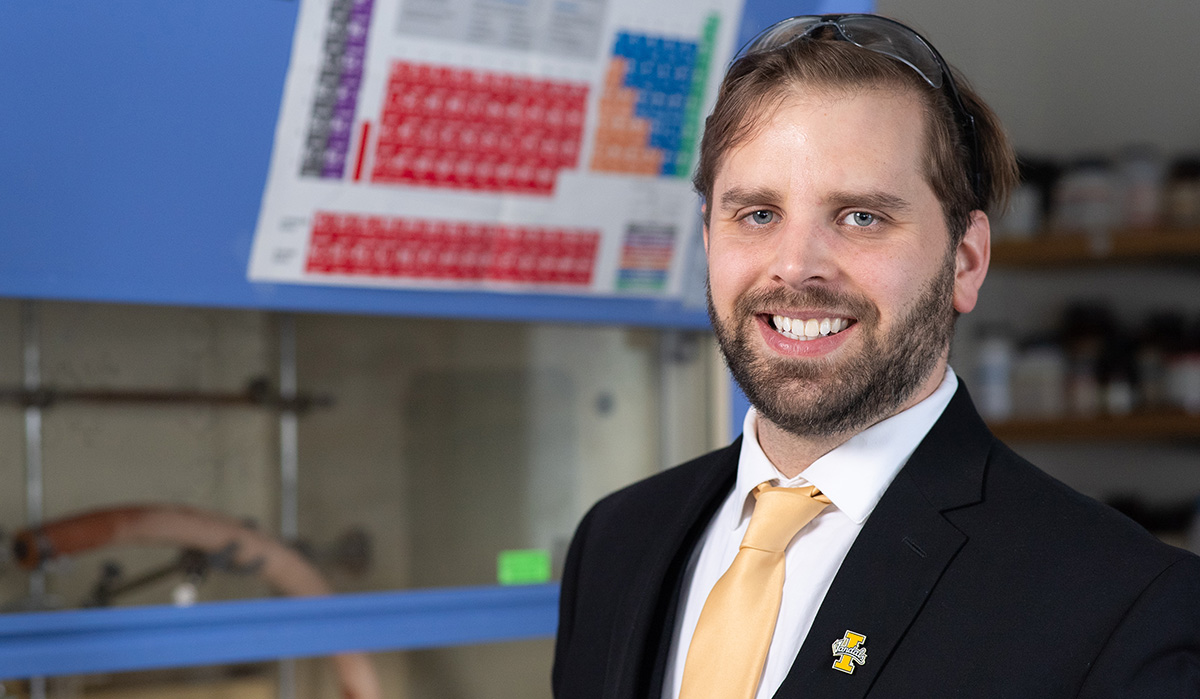
Richard Thompson, Organometallic Chemist
I’m what’s known as a synthetic organometallic chemist, which is a complicated way of saying I use metals to manipulate other organic molecules. Creating something we want, like the form of phosphorus used in herbicides, pesticides or fire retardants, is a multistep process. To make these, you often must add one molecule to remove a different part of the chemical, heat it up, manipulate something else — it’s very complex.
For several of our most useful chemicals, the process is incredibly wasteful. They can also be energy-intensive and create toxic intermediary chemicals and byproducts. Synthesizing most important phosphorus compounds involves going through white phosphorus, a chemical warfare agent, for example.
I want to find new avenues — safer and more energy-efficient avenues — for making the same chemicals that we already have. Along the way, we may even discover new, better materials like medications or ways to have more vivid colors on screens.
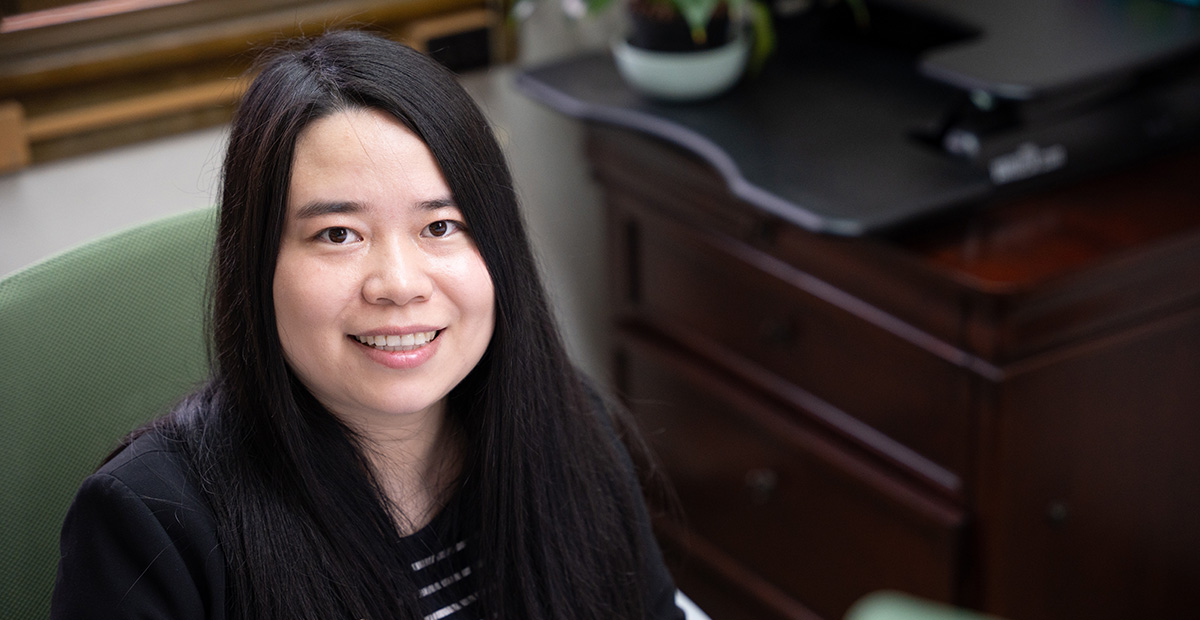
Tiantian Yang, Statistician
I want to develop and implement advanced statistical and machine-learning models for use in the healthcare system. These models would enhance our ability to predict whether a person has a specific disease and the patient’s survival. The models will be based on various risk factors — not just basic clinical factors like age, BMI or sex but also more multifaceted data.
Information from medical studies is complex and can include data such as gene expression and RNA sequencing. There is room for improving the accuracy of models used to predict diseases by incorporating these data with state-of-the-art artificial intelligence systems.
Enhanced models could allow for improved prevention, better early disease detection, fewer unnecessary treatments and more targeted treatments — overall a more sustainable use of our healthcare resources.
In addition, if I can make the models easier to understand, I can enhance the trust the healthcare community has in the models, which should lead to faster implementation and have positive impacts on patient outcomes.
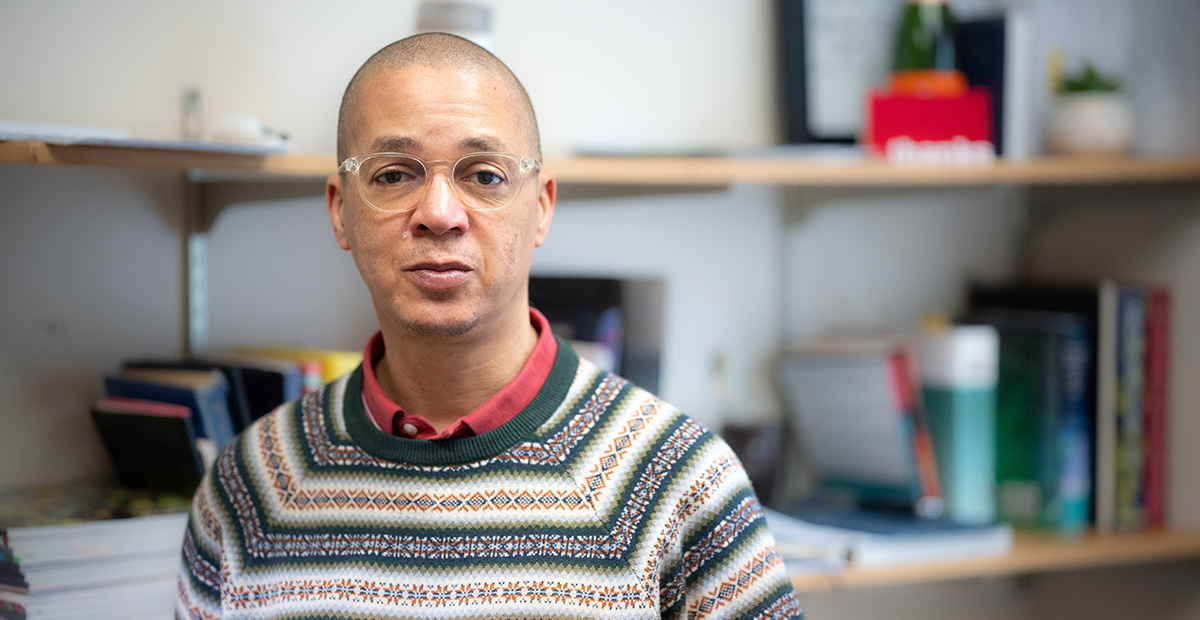
Klas Udekwu, Microbiologist
I work on antibiotic resistance from the perspective of how the man-made environment affects its abundance.
Antibiotics used by humans and in animal husbandry can accumulate in soil and wastewater, and we suspect these chemical residues select for bacterial antibiotic resistance, reducing the sustainability of our antibiotics. In addition, we found that zinc, a common animal husbandry supplement, helped one species of common soil bacteria to become resistant to a frontline drug. Our studies could help us reduce the spread of metals or other chemical add-ons that appear to be innocuous — but are not — into the environment.
We are also studying the effects of antibiotics on the proper function of microbial communities. For instance, the makeup of the microbial community in the human digestive system needs to be balanced to function properly. If one microbe becomes resistant, it can out-compete other species, unbalancing these communities. This dynamic can also play out in soil bacterial communities, which we will soon study. Such studies are crucial for plant growth, health and resistance to fungal infections, thus affecting agricultural sustainability.
Published in March 2024.







